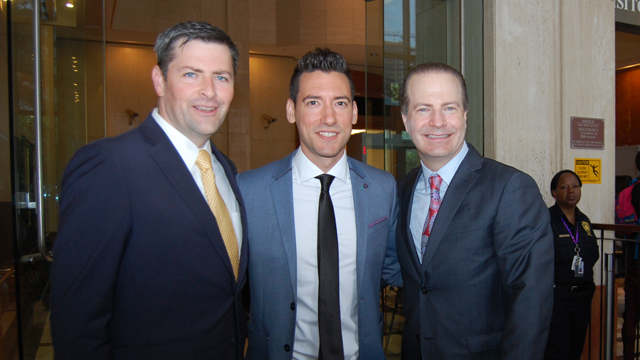
WASHINGTON (BP) — Texas legislators have turned their attention to defending unborn children since the U.S. Supreme Court invalidated their attempt last year to protect pregnant women seeking abortions.
Southern Baptist national and state leaders commended their effort.
The Texas Senate already has passed a bill prohibiting dismemberment abortion, which involves the tearing apart piece by piece of unborn babies. The Senate also has approved legislation protecting the state’s taxpayers from subsidizing elective abortions in insurance plans. Both measures await action in the House of Representatives.
The legislature’s latest approach to regulating abortion followed a Supreme Court ruling last June striking down portions of a 2013 Texas law that sought to hold abortion providers responsible for the protection of women who use their services. In a 5-3 opinion, the justices nullified requirements that an abortion clinic must meet the health and safety standards of other walk-in surgical centers and an abortion doctor must have admitting privileges at a nearby hospital in case a woman needs emergency admission.
In response to that “disappointing ruling,” Texas Right to Life worked with senators and representatives to prioritize legislation “built on protecting innocent human life and focused on that state interest instead of the state interest of protecting the health and safety of the pregnant [woman],” John Seago, the pro-life organization’s legislative director, told Baptist Press in a telephone interview.
Southern Baptist pro-life leader Russell Moore expressed gratitude for the legislature’s effort.
“The abortion industry hides from scrutiny and accountability,” said Moore, president of the Ethics & Religious Liberty Commission (ERLC), in written comments for BP. “I am thankful that Texas lawmakers and Gov. Greg Abbott have taken real steps to combat this evasion.
“My prayer is that Texas would continue to lead the way for other states in standing up for the unborn, women and communities.”
Gary Ledbetter, director of communications and ministry relationships for the Southern Baptists of Texas Convention (SBTC), told BP in a written statement, “The abortion industry and its friends in many media outlets need to read Roe v. Wade [the 1973 Supreme Court decision legalizing abortion]. A couple of the laws being considered in Texas would treat human beings, and their remains, humanely but do not outlaw abortion. These laws may cut into someone’s profit, but Roe never guaranteed anyone a living.”
The Supreme Court has affirmed that states have an interest in protecting a child as a pregnancy progresses, but the justices have not always agreed with state efforts to apply that interest. Texas’ dismemberment prohibition would bar a procedure commonly used in the second trimester of pregnancy.
“We’re trying to challenge some of the logic and assumptions the Supreme Court has adopted in abortion jurisprudence,” Seago said. “The Supreme Court has raised this artificial test, this artificial line of viability,” before which the government cannot prohibit abortion.
Seago called the viability rule an “unscientific, illogical line for them to draw, and that’s one of the things we’re trying to highlight with legislation like this.”
With the Dismemberment Abortion Ban, Texas seeks to outlaw a method — also known as D&E abortion — designed to kill a preborn child by tearing off or severing the limbs and/or other parts by the use of forceps or other instruments. It is a “barbaric, torturous abortion procedure,” Seago said.
The procedure is used in more than 95 percent of second-trimester abortions in the United States, according to the National Abortion Federation.
Seven states — Alabama, Arkansas, Kansas, Louisiana, Mississippi, Oklahoma and West Virginia — have enacted dismemberment bans, according to the National Right to Life Committee. As a result of legal challenges, only two — those in Mississippi and West Virginia — have taken effect, NRLC reported. The Arkansas law is set to become effective in June.
There is no guarantee Texas’ pro-life efforts will succeed this year, however. Both the dismemberment ban and pro-life insurance reform are “collecting dust in the House,” Seago told BP. So far, the House leadership has refused to advance the bills despite widespread support, he said.
Ledbetter said, “Everything comes down to the House in Texas. The representatives are mostly conservative, but the leadership has quashed any number of socially conservative bills. That’s where pro-life bills often go to die.”
The final day of the 2017 legislative session is May 29, and the legislature won’t return to Austin until 2019. (Texas’ legislature convenes every other year.) “We’re running out of time, so the optimism is fading,” Seago said. Pro-life advocates and members will “keep fighting to the very end of the session” and may bring the dismemberment ban and pro-life insurance measure up as amendments on other bills, he said.
Other proposals in this legislative session include one regulating the disposal of the bodies of aborted babies.
Though the Supreme Court ultimately struck down Texas’ 2013 requirements for abortion providers, about half of the state’s more than 40 abortion clinics closed after their enactment.
In last year’s case before the Supreme Court, the ERLC and the SBTC joined four other organizations in a friend-of-the-court brief that urged the justices to affirm the Texas provisions regulating abortion clinics and doctors.





















